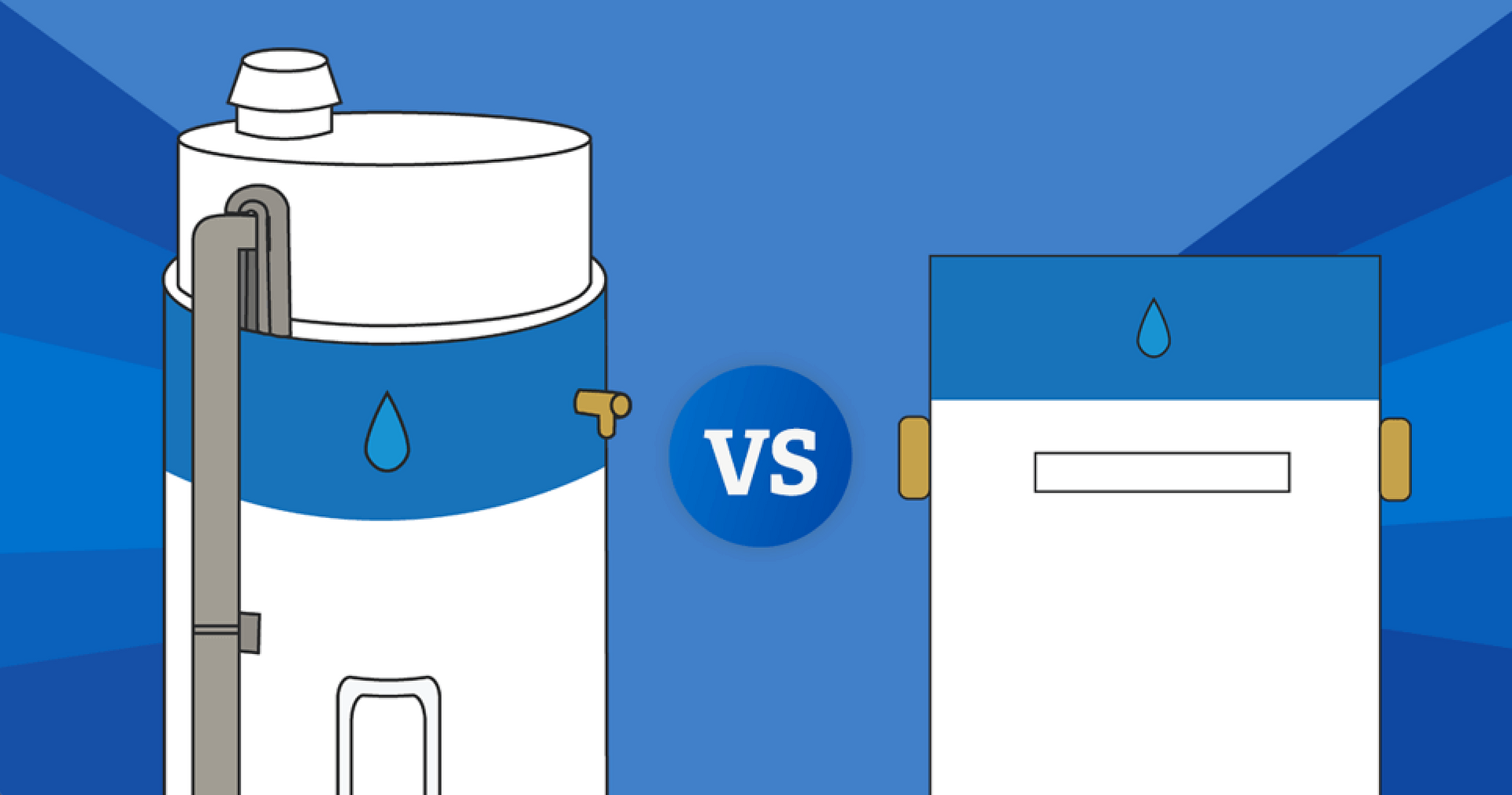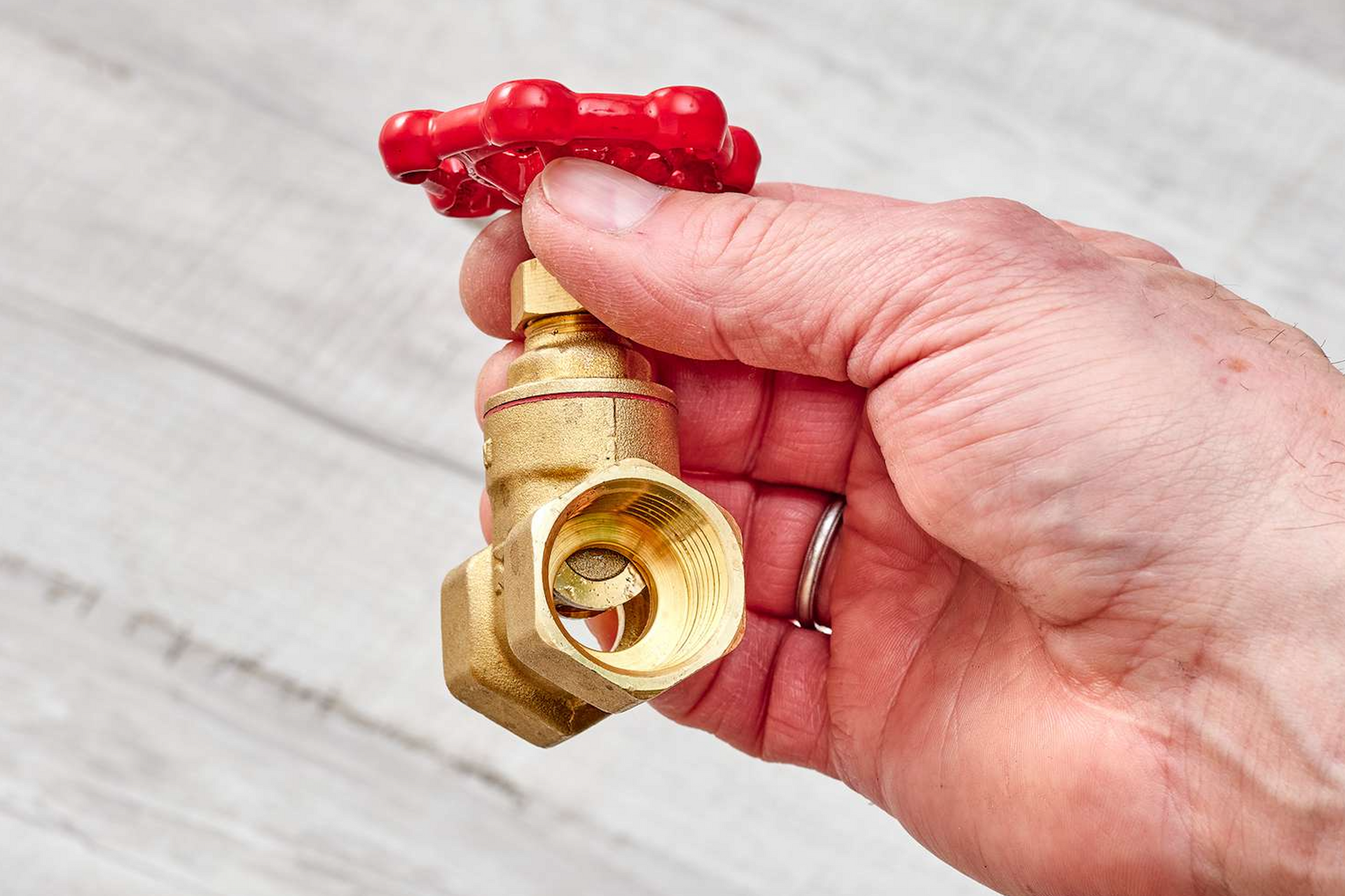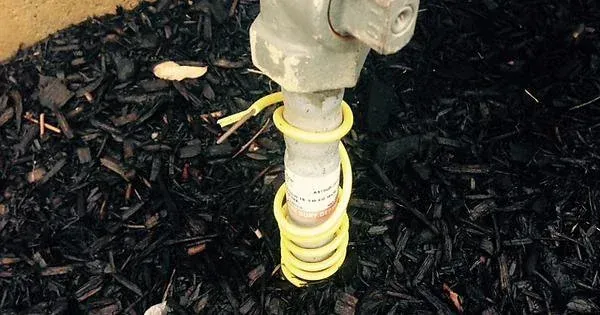Traditional vs. Tankless Water Heaters
July 5, 2023

Traditional Water Heaters
Traditional water heaters, also known as storage tank heaters, have been around for decades and are commonly found in many homes. These heaters feature a large tank that stores and heats a certain volume of water, which is ready for use whenever needed. Here are some key points to consider:
Cost:
Traditional water heaters generally have a lower upfront cost compared to tankless units. They are more affordable to purchase and install.
Installation:
Installing a traditional water heater is relatively straightforward. However, it requires sufficient space to accommodate the tank, which can be quite bulky. Placement options may be limited to areas with enough room.
Continuous Supply:
The storage tank in traditional heaters ensures a constant supply of hot water. The heated water is readily available, making it suitable for households with multiple hot water demands simultaneously.
Energy Consumption:
Traditional heaters continuously maintain the water temperature in the tank, leading to standby heat loss. This can result in higher energy consumption, especially during periods of low demand.
Tankless Water Heaters
Tankless water heaters, also known as on-demand water heaters, have gained popularity in recent years due to their energy efficiency and space-saving design. These heaters heat water directly as it flows through the unit, providing hot water instantaneously. Here are the key aspects to consider:
Energy Efficiency:
Tankless water heaters are highly energy-efficient since they only heat water when needed. They eliminate standby heat loss, which can significantly reduce energy consumption and lower utility bills.
Space-Saving Design:
Tankless units are compact and wall-mounted, saving valuable space in your home. They are particularly beneficial for smaller residences or homes where space is limited.
Initial Investment:
Tankless water heaters generally have a higher upfront cost compared to traditional units. However, the potential energy savings over time can offset the initial investment.
Limited Flow Rate:
Although tankless heaters provide hot water on demand, their flow rate may be limited compared to traditional heaters. This means they may struggle to meet simultaneous hot water demands, particularly in larger households.
Installation Considerations:
Tankless heaters may require upgrading your electrical system or gas lines to meet their power demands. Additionally, professional installation is typically recommended to ensure proper sizing and functionality.
Conclusion
Choosing the right water heater for your home involves considering your specific needs and preferences. Traditional water heaters are reliable and cost-effective, providing a constant supply of hot water. On the other hand, tankless water heaters offer energy efficiency and space-saving benefits but may have limitations in terms of flow rate and upfront cost.
Ultimately, the decision between traditional and tankless water heaters depends on factors such as budget, household size, hot water demands, and space availability. It's essential to weigh the pros and cons of each option and consult with a professional to determine the best fit for your home.
Remember, whether you opt for a traditional or tankless water heater, regular maintenance and proper usage will ensure optimal performance and longevity.
You might also like

As the trusted experts at Aaron's Water Heaters, we understand the importance of a reliable residential water heater, especially during those chilly Michigan winters. Today, we want to dive into a crucial aspect of your water heating system that often goes unnoticed – the valves. Specifically, we'll be comparing ball valves and gate valves, shedding light on their differences and helping you make an informed decision for your replacement water heater installation. The Basics: Before we delve into the specifics of ball and gate valves, let's briefly go over their primary functions. Valves play a pivotal role in controlling the flow of water within your plumbing system. They act as gatekeepers, allowing you to shut off or regulate the water supply to different parts of your home. Ball Valves: Ball valves are recognized for their simplicity and efficiency. They feature a spherical disc inside the valve body, which can be rotated to control the flow of water. When the handle is perpendicular to the pipe, the valve is closed, and when it's parallel, the valve is open. This straightforward design allows for quick and precise control over the water flow, making ball valves a popular choice for many residential applications. Advantages of Ball Valves: * Quick and Easy Operation: Ball valves are known for their user-friendly operation, allowing homeowners to shut off the water supply rapidly in case of emergencies or maintenance. * Durability: The design of ball valves makes them less prone to leaks, ensuring a longer lifespan and reduced maintenance requirements.
* Reliability: Ball valves provide a tight seal, minimizing the risk of water wastage and maintaining a consistent water flow. Gate Valves: Gate valves, on the other hand, employ a flat or wedge-shaped gate that moves up and down within the valve body. When the gate is raised, water can flow through; when lowered, the valve is closed. While gate valves are also widely used, they differ from ball valves in terms of operation and application. Advantages of Gate Valves: * Full Flow Control: Gate valves offer full, unrestricted flow when fully open, making them suitable for applications where maximum water flow is essential.
* Less Susceptible to Clogs: The straightforward design of gate valves makes them less prone to clogging, ensuring consistent performance over time. Choosing the Right Valve for Your Water Heater (and other plumbing in your home): When it comes to selecting the right valve for your residential water heater in here in Michigan, several factors come into play. Consider the specific requirements of your system, your preferences for ease of use, and the overall functionality you desire. For most homeowners in our region, the simplicity and reliability of ball valves make them an excellent choice. However, if your water heater demands high water flow and you prioritize maximum control, a gate valve might be the better fit. Conclusion: At Aaron's Water Heaters, we prioritize not only delivering top-notch replacement water heater installations but also ensuring you understand the components of your plumbing system. Knowing the difference between ball and gate valves empowers you to make informed decisions for your home. Contact Aaron's Water Heaters today for expert advice and seamless water heater installations tailored to the unique needs of fellow Michigan homeowners. Stay warm and worry-free with Aaron's!

Water heaters play a crucial role in our daily lives, providing us with hot water for showers, cleaning, and various household tasks. While they are essential, it's important for homeowners to be aware of potential safety hazards associated with water heaters. In this article, we will discuss key aspects of water heater safety and offer tips to ensure your system operates smoothly without posing risks to your home and family. Temperature Settings: One of the first considerations for water heater safety is setting the temperature at an appropriate level. The U.S. Department of Energy recommends a temperature setting of 120°F to prevent scalding while still meeting the needs of most household activities. Higher temperatures can increase the risk of burns, especially for children and the elderly. Regular Maintenance: Regular maintenance is essential for the safe and efficient operation of your water heater. Over time, sediment can accumulate at the bottom of the tank, reducing its efficiency and potentially causing overheating. Schedule annual flushing of the tank to remove sediment buildup and ensure optimal performance. Pressure Relief Valve: Every water heater is equipped with a pressure relief valve as a safety measure. This valve releases excess pressure from the tank, preventing potential explosions. Homeowners should test this valve periodically to ensure it is functioning correctly. If you find any issues, contact a professional plumber to address the problem promptly. Proper Ventilation: Gas-powered water heaters require proper ventilation to ensure the safe expulsion of combustion gases. Make sure the area around your water heater is well-ventilated and free from obstructions. Additionally, have a professional inspect the ventilation system annually to confirm its effectiveness. Check for Leaks: Water leaks around your water heater can lead to serious damage and pose safety risks. Regularly inspect the area around the heater for any signs of leakage, including rust or water puddles. Address any leaks promptly by tightening connections or replacing faulty components. Age of the Water Heater: Like all appliances, water heaters have a lifespan. Most units last around 10-15 years. If your water heater is nearing the end of its expected lifespan, consider proactively replacing it to avoid potential breakdowns and safety hazards associated with aging systems. Carbon Monoxide Detection: For gas water heaters, it's crucial to have a functioning carbon monoxide detector installed in the vicinity. Carbon monoxide is a colorless, odorless gas that can be produced by gas-burning appliances. Regularly check your detector and replace the batteries to ensure it is operational at all times. Conclusion: Prioritizing water heater safety is a responsibility that every homeowner should take seriously. By following these essential tips and conducting regular inspections and maintenance, you can ensure your water heater operates efficiently and safely. If you ever have concerns or encounter issues beyond your expertise, don't hesitate to consult with a professional plumber to address the issue promptly. Your family's safety and the longevity of your water heater depend on proactive care and attention to these crucial details.

Ever wonder what that random bare wire is sticking out of the ground near your gas meter or along the foundation of your house? No, someone didn’t forget to connect it to a circuit. Its purpose is safety! Let us explain… The underground infrastructure of our cities and towns is complex, carrying everything from water and gas to electricity and communications. For those in industries such as plumbing, like us at Aaron's Water Heaters, understanding the nuances of this underground world is essential. One such nuance is the use of tracer wires, which play a critical role in locating and identifying these utilities. In Michigan, understanding the color code of these tracer wires is pivotal. Here's a dive into what each color signifies according to the Michigan building code. What are Tracer Wires? Before we delve into the color codes, it's crucial to understand what tracer wires are. They're conductive wires buried alongside underground utilities like water lines, gas lines, or other conduits. These wires make it possible to locate the utilities later using an electronic locator, preventing potential damage to the infrastructure and ensuring safety during any excavation or drilling. Michigan Building Code: Tracer Wire Colors and Their Meanings The Michigan building code adopts the APWA (American Public Works Association) Uniform Color Code for marking underground utilities. Each color represents a different type of utility. Let's break down the significance of each: Red: Electrical power lines, cables, conduit, and lighting cables. The presence of a red tracer wire usually indicates that there's an electrical utility underground. Caution is advised. Yellow: Gas, oil, steam, petroleum, or gaseous materials. Yellow is a warning color, indicating potential flammable and hazardous materials below. Orange: Communication, alarm or signal lines, and cables or conduit. This color is generally associated with telecommunication lines like phone, internet, or cable TV. Blue: Potable water. Blue tracer wires lead to clean drinking water sources, and it's essential not to contaminate these lines during any work. Purple: Reclaimed water, irrigation, and slurry lines. Purple indicates non-potable water, used mainly for irrigation or industrial purposes. Green: Sewers and drain lines. Green tracer wires typically show the pathways of waste and stormwater systems. White: Proposed excavation. This color isn't necessarily for a tracer wire but is used in marking to indicate a planned excavation site. Pink: Temporary survey markings. Again, pink might not be associated with a tracer wire directly, but it is important in the realm of excavation and utility mapping. Why is Respecting these Color Codes Important? Mistaking one utility for another can have catastrophic consequences. For example, puncturing a gas line while thinking it's a water line can lead to explosions. Additionally, not locating utilities before digging can result in costly repairs, disrupted services, and potential legal liabilities. Hence, respecting and understanding the color codes is paramount. Final Thoughts While Aaron's Water Heaters specializes in keeping your home's water heating systems optimal, we believe in a holistic understanding of all things related to home infrastructure. Knowledge of underground utilities and the importance of tracer wires is just one aspect of that. If you're undertaking any digging or excavation, always ensure you're aware of the tracer wire color codes in your region. Remember, safety always comes first. Stay informed and ensure any professionals you hire are knowledgeable about the local building codes and best practices. If you have any questions related to water heaters or associated plumbing, don't hesitate to get in touch with Aaron's Water Heaters. We're here to help!
